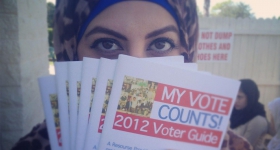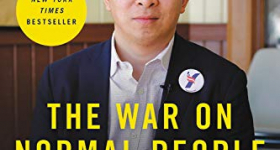Leaders within the Obama Administration have expressed a need for reform. Secretary Gary Locke of the Commerce Department and Secretary Hilda Solis of the Labor Department recently came out in support of the issue, citing that while it may seem counterintuitive to pass immigration legislation while the nation is experiencing an historic economic recession, comprehensive reform with a path to legalization would result in economic growth and boost the wages of all workers. A recent UCLA study shows that reform will in fact generate $1.5 trillion for the economy over the next 10 years.
Most importantly, the American people support reform. A December 2009 poll by America’s Voice shows that 65% of voters want Congress to take up immigration reform in 2010 rather than wait until later. This support was consistent across party lines, supported by 69% of Democrats, 67% of independents and 62% of Republicans. Despite the partisanship of our times, these polls show immigration reform is a bipartisan issue.
The need for comprehensive reform for our AAPI immigrant communities couldn’t be any greater. For nearly a decade, reforming our broken immigration system has been a central concern of our community. Nearly 60% of the AAPI community are immigrants, where about 1.2 million AAPIs, or 10%, is undocumented. Among Korean Americans, roughly one in five is undocumented.
Even more AAPIs are waiting to get a visa in the family immigration backlogs, where nearly half of the backlog is composed of AAPI applicants. U.S. citizens and green-card holders are currently waiting 5, 10 or even 20 years to be reunited with their loved ones. Facing the longest backlogs, Chinese and Indian siblings must wait 10 years for a visa, while Filipino sibling applicants may wait up to 23 years.
Community members are being devastated by ongoing detention and deportation; this is especially true for the Southeast Asian and Pacific Islander communities, where many young Cambodian Americans, Tongans and Fijians are being repatriated -- often to lands many of them never knew. In the wake of 9/11, targeted enforcement of the AAPI community, in particular South Asians and Muslims, continues to compromise immigrants’ due process rights and civil liberties. And with the downturn in the economy, immigrant scapegoating has begun to mirror the sentiments of times gone by, such as the Chinese exclusion and Japanese internment.
The AAPI community has suffered too long from the broken immigration system and waited too long for reform. Hence we must show that we are serious about immigration reform and flex our growing economic and political power. In 2009 alone, 1.1 million AAPI firms provided jobs to 2.2 million employees and had receipts of $326.4 billion. And between the 2004 and 2008 presidential elections, the number of AAPI voters increased 23%. We elected our representatives to solve tough problems with practical solutions, and we expect our leaders to lead.
The Reform Immigration FOR America campaign is mobilizing in all 50 states to show Congress that Americans want action now. Join us by participating in a national text-in by texting “AAPI” to 69866 or calling your member of Congress.
Guest blogger Connie Choi is the Policy Advocate for the Immigrant Rights Project at the Asian Pacific American Legal Center. The Asian Pacific American Legal Center works closely with three affiliates – the Asian American Institute in Chicago, the Asian Law Caucus in San Francisco, and the Asian American Justice Center in Washington, DC. A similar blog was previously posted on APAs for Progress.









Comments